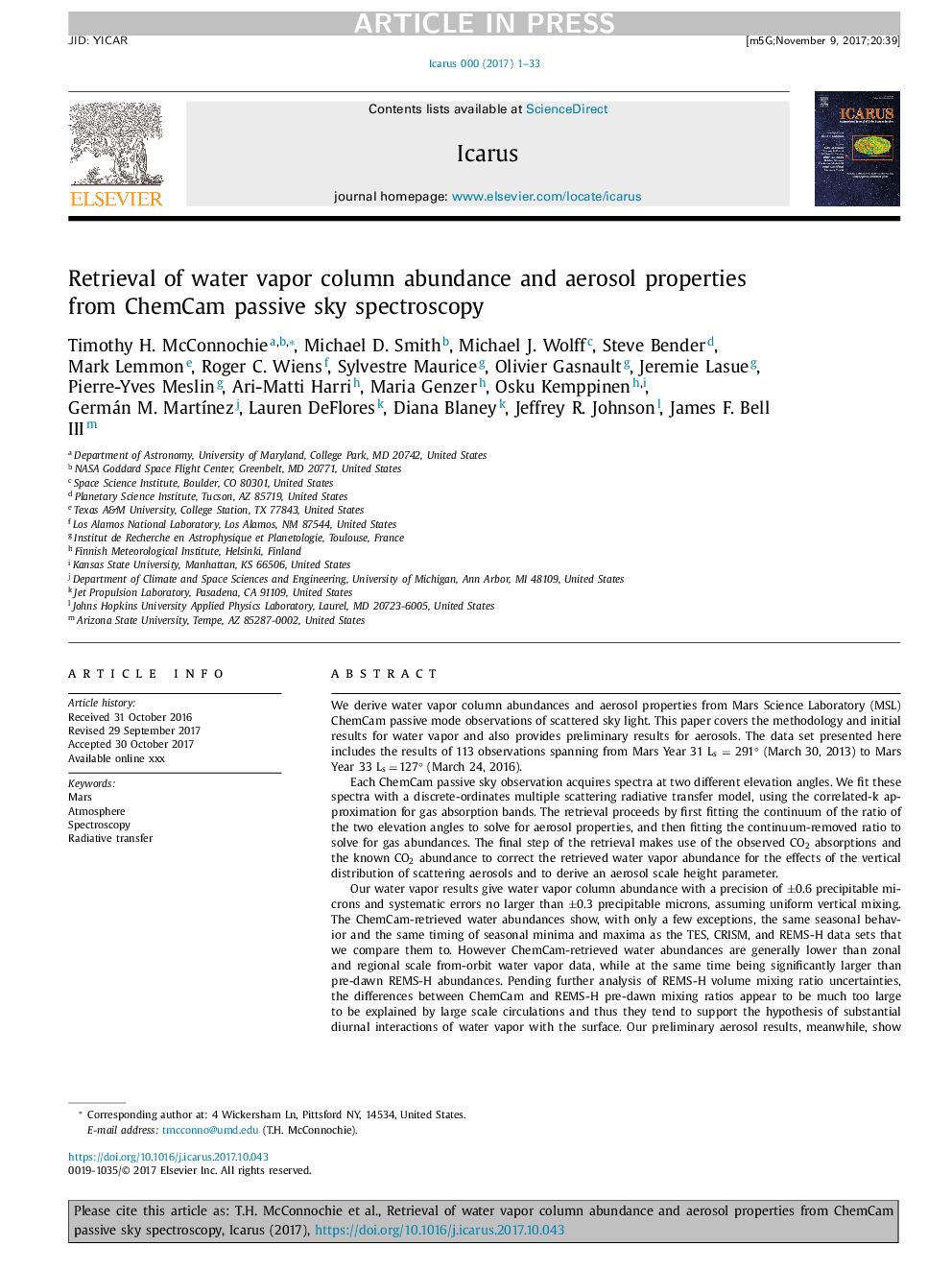| Article ID | Journal | Published Year | Pages | File Type |
|---|---|---|---|---|
| 8134248 | Icarus | 2018 | 33 Pages |
Abstract
Our water vapor results give water vapor column abundance with a precision of ±0.6 precipitable microns and systematic errors no larger than ±0.3 precipitable microns, assuming uniform vertical mixing. The ChemCam-retrieved water abundances show, with only a few exceptions, the same seasonal behavior and the same timing of seasonal minima and maxima as the TES, CRISM, and REMS-H data sets that we compare them to. However ChemCam-retrieved water abundances are generally lower than zonal and regional scale from-orbit water vapor data, while at the same time being significantly larger than pre-dawn REMS-H abundances. Pending further analysis of REMS-H volume mixing ratio uncertainties, the differences between ChemCam and REMS-H pre-dawn mixing ratios appear to be much too large to be explained by large scale circulations and thus they tend to support the hypothesis of substantial diurnal interactions of water vapor with the surface. Our preliminary aerosol results, meanwhile, show the expected seasonal pattern in dust particle size but also indicate a surprising interannual increase in water-ice cloud opacities.
Related Topics
Physical Sciences and Engineering
Earth and Planetary Sciences
Space and Planetary Science
Authors
Timothy H. McConnochie, Michael D. Smith, Michael J. Wolff, Steve Bender, Mark Lemmon, Roger C. Wiens, Sylvestre Maurice, Olivier Gasnault, Jeremie Lasue, Pierre-Yves Meslin, Ari-Matti Harri, Maria Genzer, Osku Kemppinen, Germán M. MartÃnez,
